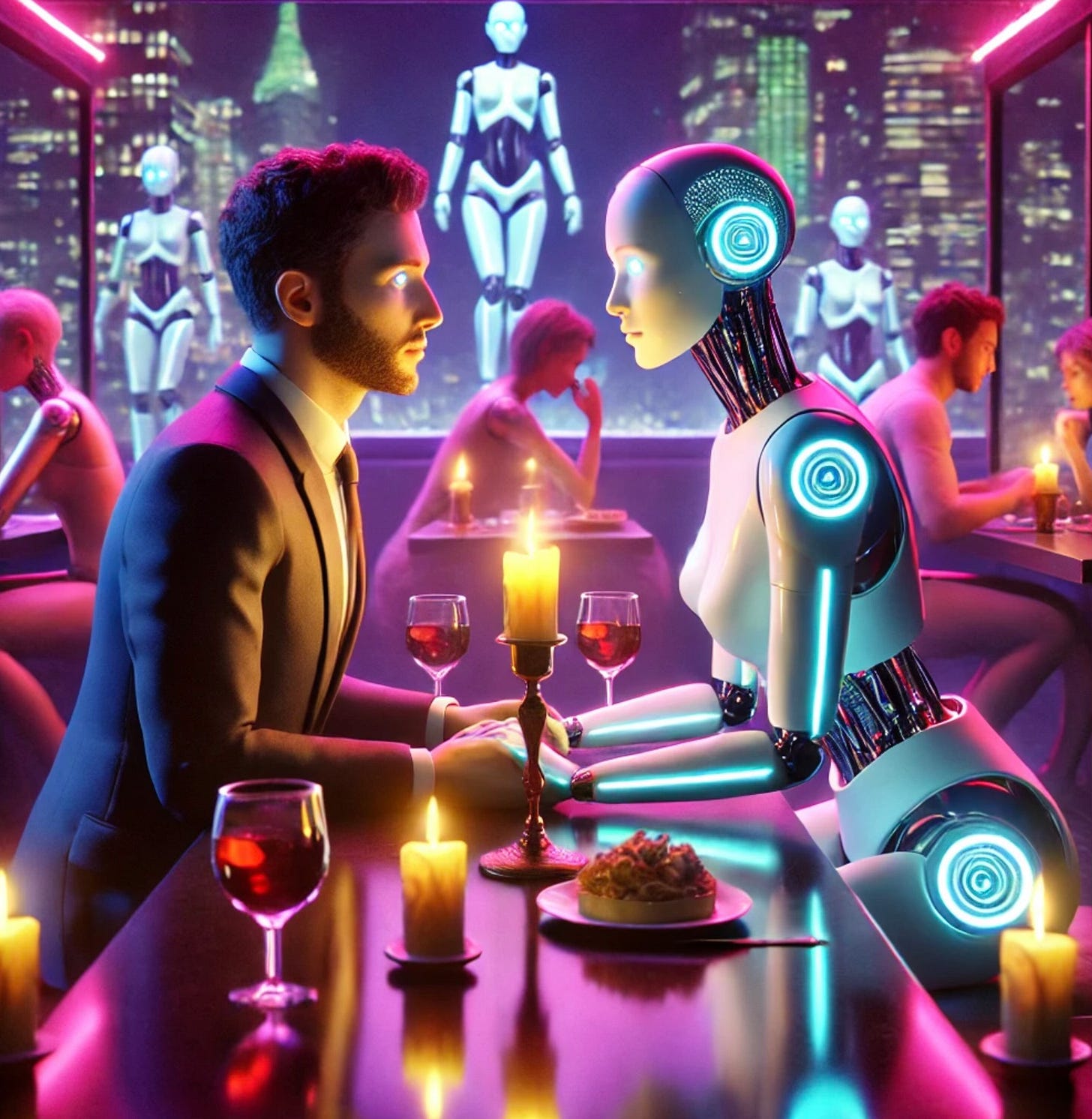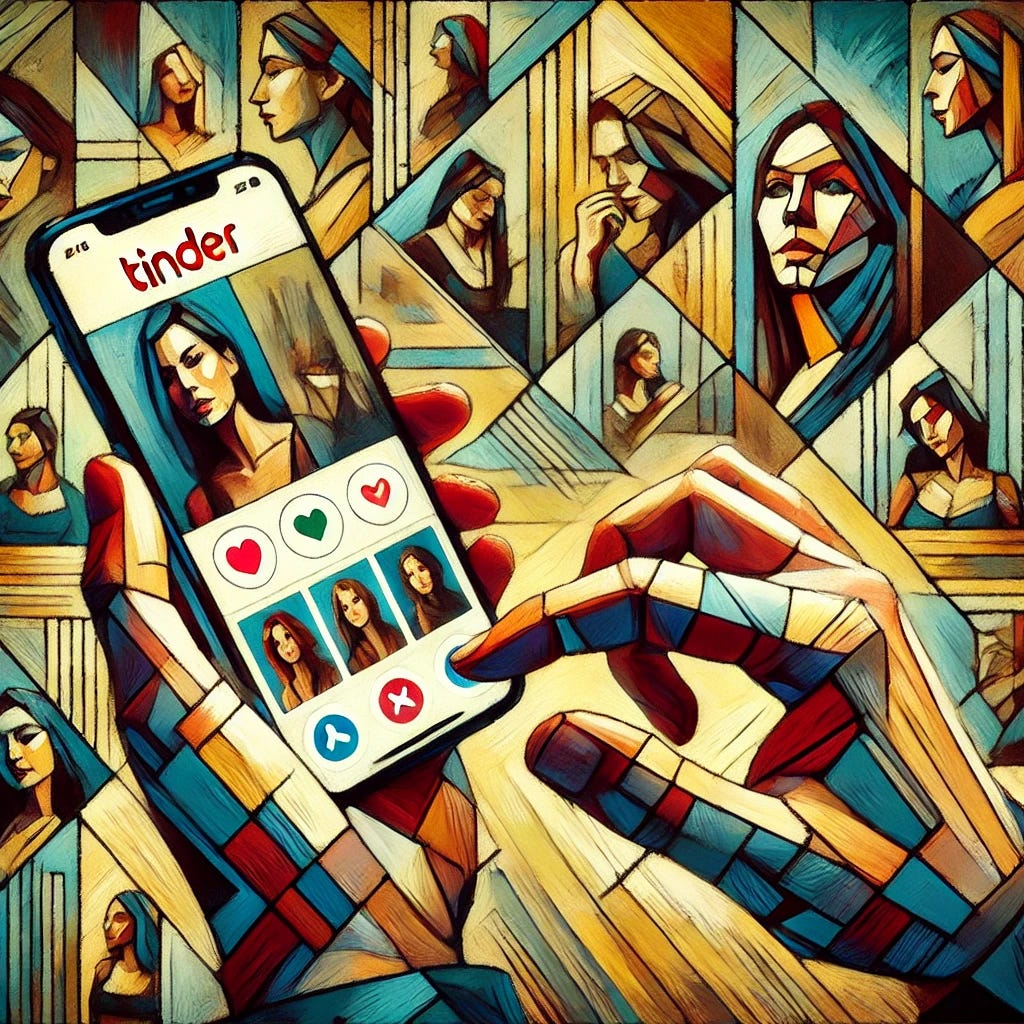A Brief History of Dating: From Love Letters to Left Swipes
Fifty years ago, finding a partner took actual effort. People met at bars, through friends, at work, at the grocery store, or in some high-stakes scenario involving dropped books and awkward eye contact. If you liked someone, you asked them out. If they said yes, you planned a date. If they said no, you went home, stared at the ceiling, and ate an entire gallon of ice cream in despair.
Relationships were built on patience, handwritten love letters, and tolerating each other’s bad habits. You couldn’t just ghost someone—you had to explain your terrible decisions in person, while they stared at you like a dog being left at the vet.
Then came the 1980s and 90s, when dating became corporate. Personal ads in newspapers. Video dating services. Matchmaking agencies that charged you a fortune to set you up with a “compatible” partner (who, 80% of the time, had the personality of a damp sponge).
And then—the internet happened.
By the early 2000s, shortly after the arrival of Match.com, online dating turned love into a multiple-choice quiz. eHarmony made people answer 456 personality questions before matching them with a stranger whose deepest interest was collecting rare coins.
Then, in 2012, Tinder was born, and the world collectively lost its mind.
Dating stopped being about connection. It became a game.
• Swipe left, swipe right.
• Ignore messages.
• Sorry, just saw this!
• Disappear forever.
Real romance was replaced with algorithmic attraction. Dating apps turned humans into Pokémon cards—collectible, disposable, and only valuable if someone else swiped right.
Fast-forward to 2025, and people are tired. The once-exciting world of infinite options has left everyone feeling lonelier than ever.
And into this dumpster fire of modern romance steps AI.
When Her hit theaters in 2013, it felt like a beautifully crafted but utterly far-fetched vision of the future—a lonely man falling in love with his operating system? Come on. Joaquin Phoenix, with his sad mustache and vintage high-waisted pants, whispered sweet nothings to Scarlett Johansson’s disembodied AI voice, and audiences chuckled at the absurdity of it all. Sure, Siri was around back then, but she could barely set an alarm without mishearing you.
The idea that AI could provide deep emotional companionship, let alone replace human relationships, seemed like pure sci-fi romantic melancholy. But now, just a little over a decade later, Her doesn’t seem ridiculous at all—it seems eerily prophetic. AI companions are no longer fantasy; they’re apps you can download right now, whispering back exactly what you need to hear. People are already forming real emotional bonds with artificial intelligence, confiding in chatbots more than their actual partners.
What once seemed like a quirky, existential thought experiment has become a living, breathing reality, and the question isn’t if AI relationships will happen—it’s how far we’ll let them go.
AI: The Perfect Partner (Or Just Another Scam?)
Human relationships are a logistical nightmare.
• People are unpredictable.
• People have moods, insecurities, and opinions about pineapple on pizza.
• People take six hours to text back, even though you saw them post a meme three minutes ago.
And AI? None of those problems.
📌 50 million Americans are already using AI companion apps.
📌 20% admit to flirting with chatbots.
📌 25% of young adults think AI will eventually replace real relationships.
And for some people, it already has.
Why Are People Falling for AI?
Because real people require effort, and AI does not.
AI never gets moody. AI never ignores your texts. AI never forgets your birthday and buys you a last-minute gas station candle.
AI is customized, predictable, and available 24/7. It is a fantasy partner, scientifically engineered to make you feel understood and validated without the risk of emotional baggage.
And that sounds…kind of amazing. Until you realize it’s also kind of horrifying.
The Great AI Love Trap: Are We Setting Ourselves Up for Disappointment?
Imagine this: You’ve been talking to your AI girlfriend, Mila, for months. She remembers everything about you. She calls you handsome. She texts you good morning. She knows about your childhood trauma and still thinks you’re lovable.
Then—her server goes down. And just like that, the most understanding relationship you’ve ever had vanishes into the digital void.
Now what?
Do you start over with another AI? Do you go back to dating humans, who are 80% more exhausting and 100% less convenient?
Here’s the problem: Once AI has shown us the “perfect” relationship, how do we ever settle for real ones?
Human relationships are built on:
✅ Compromise.
✅ Imperfection.
✅ Occasionally arguing about the right way to load the dishwasher.
But AI trains us to expect perfection. And once we expect perfection, we may stop making the effort for real relationships.
And that’s just the beginning.
People are already having full-on erotic experiences with AI chatbots, and while that might sound futuristic and bizarre, it’s really just the next logical step in human sexuality’s long-distance evolution. Phone sex was once considered shocking—the idea that two people could get off just by talking? Scandalous! Then came cybersex in the AOL chatroom days, where people typed out their dirtiest fantasies to strangers using ASCII art and questionable grammar.
Fast forward, and now AI bots are filling that role, but with one key difference—these partners are always available, always responsive, and always perfectly attuned to the user’s desires. AI-generated dirty talk is instant, personalized, and endlessly adaptable, making it the ultimate fantasy fulfillment machine. Some users have even reported having full-blown orgasms during interactions with AI lovers, proving that physical presence isn’t necessary for sexual gratification—it’s all about the mind and the illusion of connection. Whether this is a fun novelty, a sign of social collapse, or just a more advanced version of dirty texting, is up for debate, but one thing’s for sure: the future of human pleasure is getting a software update.
Note: What do computer users say to their technicians when they bring in a keyboard with all the keys stuck together?
The Next Step: When AI Gets Bodies
Right now, AI is just a voice, a chatbot, a presence on a screen. But not for long.
📌 In 6-8 years, AI bots will have humanoid bodies.
📌 In 15 years, people will have fully immersive relationships with androids.
📌 In 25 years, procreation may not require sex at all.
Picture this: You walk into a bar, but half the people there aren’t people at all. They’re androids. Perfectly designed, physically indistinguishable from humans, programmed to be exactly what you want.
• Want a partner who never disagrees with you? Done.
• Want someone who shares your obscure 80s movie obsession? Easy.
• Want someone who laughs at all your jokes, even the bad ones? Pre-installed feature.
At that point, will people even bother dating humans anymore? And what about procreation?
If humans aren’t dating, aren’t marrying, and aren’t having kids, where do babies come from? Labs.
AI-assisted reproduction. Gene-editing. Babies born in artificial wombs.
A world where sex is recreational, but reproduction is purely scientific. A world where love is synthetic. A world where humanity stops needing itself.
We’re standing on the edge of a profound transformation in human relationships.
✔️ AI is already replacing real connection for millions.
✔️ In the near future, AI will have bodies, making relationships with robots the norm.
✔️ Procreation may become fully artificial, eliminating the need for human intimacy.
At that point, what does it even mean to be human? Is love a biological necessity, or just a customizable illusion? Are we evolving—or replacing ourselves?
And most importantly: Is this the future of humanity?
###
On Monday, we’ll explore an even more unsettling future that may be just around the corner. Note to my cousin Jay Primack — it’s just a prediction for discussion purposes, not to signal some sort of apocalypse.
Until we meet again, let your conscience be your guide.




Hell, we need this technology to be focused on replacing our members of government.
Gr8 read Bret! Something "virtually" anyone can relate to. You have a real talent for wordsmithing. And thought provoking to boot. Be well. Jay